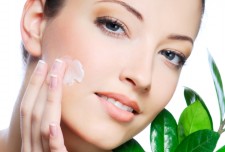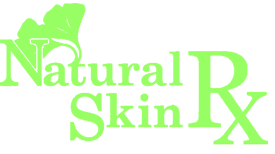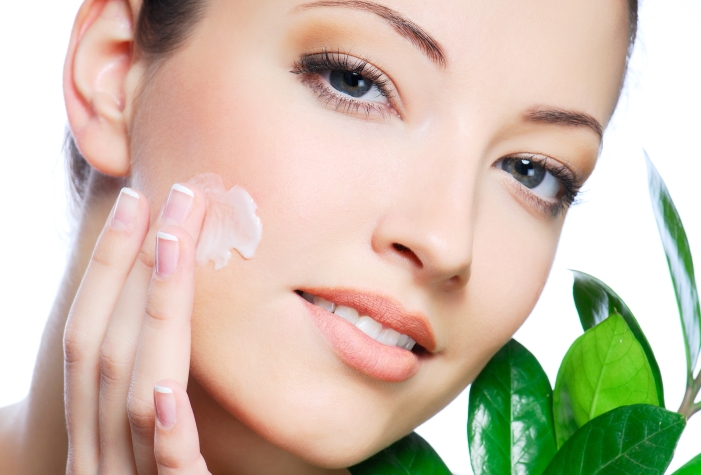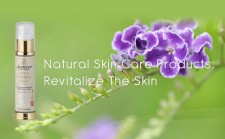 Parabens have become a worry for the ‘organic’ crowd over the past few years. Like many synthetic skin care ingredients, their use began long before anyone knew about their safety. As the information base continues to grow about them, the importance of avoiding the use parabens becomes more apparent. Parabens are comprised of a core component, hydroxybenzoic acid, which is modified by what chemists call side groups. These side groups form the differences among the six main parabens that are currently used by industry today: methylparaben, ethylparaben, propylparaben, isobutylparaben, butylparaben and benzylparaben. These names appear on ingredient labels, making it easy to see whether any parabens have been added. Parabens are used as preservatives because of their anti-bacterial and anti-fungal properties. They can be found in many types of formulas, including cosmetics, shampoos, shaving gels, spray tanning solutions, toothpaste, drugs, and even foods. One recent estimate suggested that more than 13,000 cosmetics products alone contain parabens.
Parabens have become a worry for the ‘organic’ crowd over the past few years. Like many synthetic skin care ingredients, their use began long before anyone knew about their safety. As the information base continues to grow about them, the importance of avoiding the use parabens becomes more apparent. Parabens are comprised of a core component, hydroxybenzoic acid, which is modified by what chemists call side groups. These side groups form the differences among the six main parabens that are currently used by industry today: methylparaben, ethylparaben, propylparaben, isobutylparaben, butylparaben and benzylparaben. These names appear on ingredient labels, making it easy to see whether any parabens have been added. Parabens are used as preservatives because of their anti-bacterial and anti-fungal properties. They can be found in many types of formulas, including cosmetics, shampoos, shaving gels, spray tanning solutions, toothpaste, drugs, and even foods. One recent estimate suggested that more than 13,000 cosmetics products alone contain parabens.
Health Concerns About Parabens
The Cosmetic Ingredient Review (CIR) concluded in 1984 that methylparaben, propylparaben, and butylparaben were safe for use in cosmetic products. This report was way before anyone knew very much about parabens. Since that time new data about their potential dangers has led the CIR to reevaluate the original safety assessments of these additives in cosmetics. The leading health concern about parabens is based on their estrogenic properties. In other words, they act like estrogen. A 2004 study in the Journal of Applied Toxicology even detected parabens in breast tumors. Parabens found in 18 of the 20 tumors tested were believed to come from products applied to the skin. This study calls attention to the concern in modern medicine for the association of estrogenic activity with certain forms of breast cancer. Parabens no doubt do not act alone. Exposure to other synthetics in skin care products, in foods, in bottled water, and even in polluted air, add to the toxic load that typifies modern life. It takes knowledge and vigilance to minimize personal exposure to such potentially harmful, seemingly ubiquitous chemicals. Is it worthwhile to avoid exposure to parabens? Yes, absolutely. Fortunately, this is fairly simple to do, just by reading labels. You may need a magnifying glass to read the tiny print on some products. At first it may be surprising to find how widespread their use is. The best products, though, will either state ‘paraben-free’ right on the front of their labels or in their online descriptions.
Replacing Parabens with Herbs
Keep in mind that parabens are synthetic preservatives. Are there natural preservatives that can take their place? Indeed, every herb on Earth produces some form of natural preservatives. One class of such natural substances, called flavonoids, occurs throughout the plant kingdom. More than 4,500 different flavonoids have been discovered, and every herb has anywhere from a dozen or more, even up to 50, different kinds of them. The easy answer to whether skin care products can be paraben-free is, yes, if they provide natural preservatives from herbs in place of parabens. In other words, there is no need whatsoever to use parabens when Mother Nature provides all the preservative power that we need. The best choices for paraben-free skin care are, therefore, all-natural products that are based on herbs. They do not need synthetic preservatives, since natural ones are already built in. In addition to containing multiple kinds of natural preservatives, herbal formulas also provide mixtures of ingredients that complement and synergize with one another to provide a strong foundation for good skin health. A great example is the HydraNourish Body Lotion from Jadience Herbal Formulas. Daily use of this lotion is a great way to protect and nourish your skin the way it ought to be.


